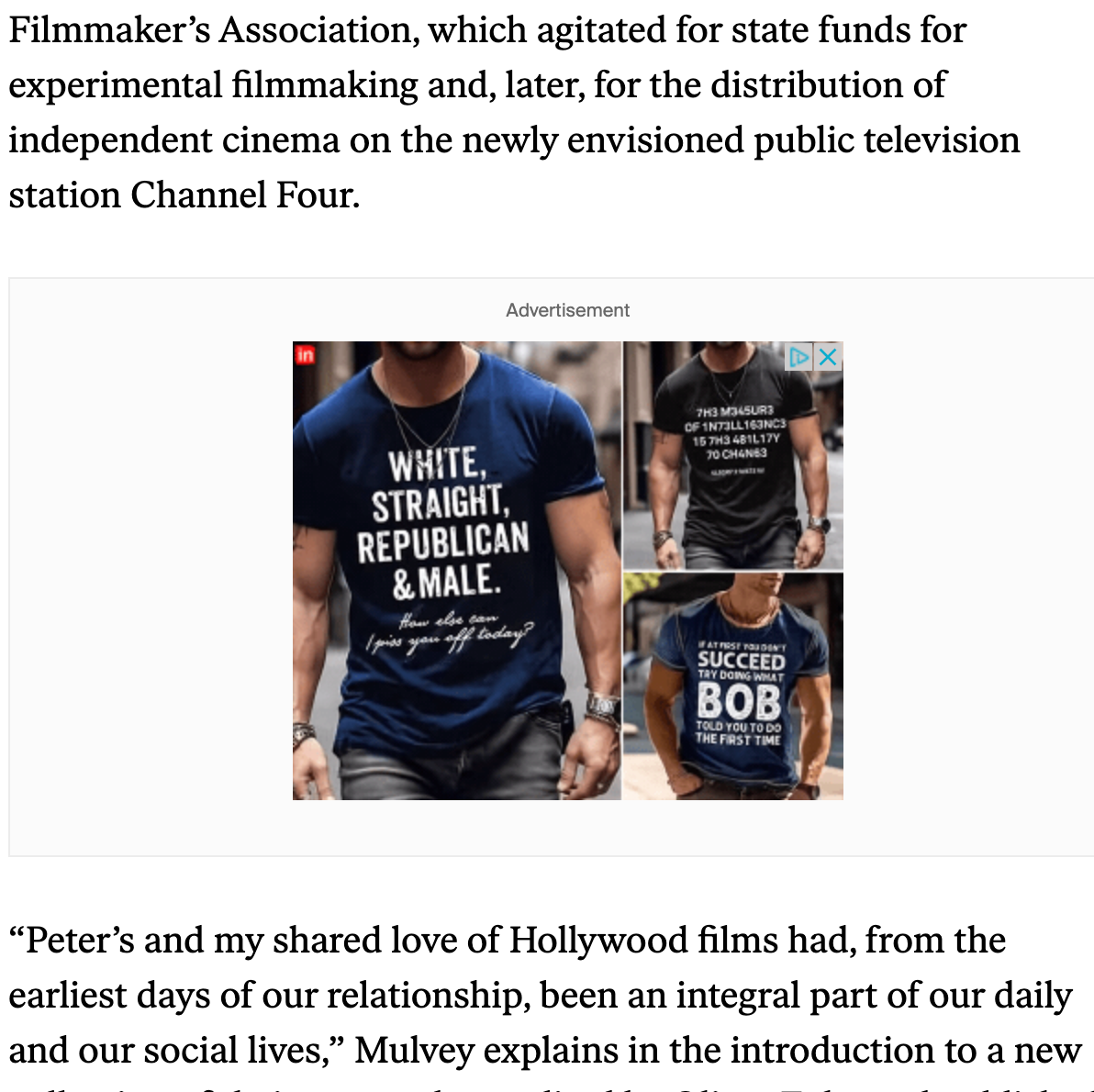Ad profiling and hostile performative identity
I've had two radically divergent experiences with internet advertising. On one hand, certain sites (and email teasers) are suspiciously good at showing me ads related to things I've searched for or even just written about in an email. But on other sites, in contrast, the ads generally show me things that don't fit me at all: jewelry, perfume, women's dresses, industrial hosing, machines for mass-production of paper bags, point-of-sale systems, cosmetics, …
The second kind of sites are mostly magazines, newspapers, scientific journals, etc., and so I figure that those ads are just the same mostly-not-for-me things I might see in old-fashioned paper issues from the same sources. But some of the badly-targeted ads don't fit that narrative either — for example, this one, which has popped up for me, multiple times, in several different on-line publications recently. Here's a sample sighting, with a bit of the (totally irrelevant) textual context:
Read the rest of this entry »




